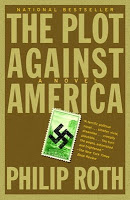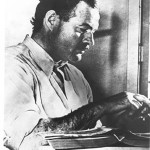Imagine a world in which Britain negotiated a peace with Hitler. Jo Walton does in Farthing and it’s not very nice.
 It is 1949 and Hitler is in control of continental Europe and his influence is spanning the western world. Antisemitism and general intolerance are becoming more acceptable and blatant. The peace deal was brokered by a group known as “the Farthing set” (reminiscent of the Cliveden set, who where thought to favour appeasement). The Farthing Estate is the setting for a country weekend gathering of powerful aristocrats which leads to the murder of Sir James Thirkie, the main broker of the deal. Lucy Eversley incurred her parents’ displeasure by marrying David Kahn, a Jew. Nevertheless she and her husband are invited to her parents’ weekend party at Farthing. Present also are the unfortunate Sir James Thirkie and his thoroughly unlikable wife Angela, and Mark and Daphne Normanby. Normanby has been slated as the next prime minister. Thirkie is found dead with a rather obvious yellow star pinned to his chest immediately casting suspicion on Kahn. Enter Inspector Peter Carmichael, a man with his own secret to hide, to investigate.
It is 1949 and Hitler is in control of continental Europe and his influence is spanning the western world. Antisemitism and general intolerance are becoming more acceptable and blatant. The peace deal was brokered by a group known as “the Farthing set” (reminiscent of the Cliveden set, who where thought to favour appeasement). The Farthing Estate is the setting for a country weekend gathering of powerful aristocrats which leads to the murder of Sir James Thirkie, the main broker of the deal. Lucy Eversley incurred her parents’ displeasure by marrying David Kahn, a Jew. Nevertheless she and her husband are invited to her parents’ weekend party at Farthing. Present also are the unfortunate Sir James Thirkie and his thoroughly unlikable wife Angela, and Mark and Daphne Normanby. Normanby has been slated as the next prime minister. Thirkie is found dead with a rather obvious yellow star pinned to his chest immediately casting suspicion on Kahn. Enter Inspector Peter Carmichael, a man with his own secret to hide, to investigate.
Farthing is part alternate history, part murder mystery and part political thriller. The chapters flow smoothly from Lucy’s first person perspective to Carmichael’s third person, keeping the story hopping and the book compulsively readable. By opting out of war with Hitler, Britain has condoned Hitler’s choices and is itself slipping down a dangerous slope toward fascism. While the resolution of the murder is a bit anti-climactic, the implications of the resolution have thought provoking (chilling?) consequences. An excellent choice to inspire book group discussions.

 I am really looking forward to reading the next in the series – Ha’Penny and Half a Crown.
I am really looking forward to reading the next in the series – Ha’Penny and Half a Crown.
Walton has been compared to Josephine Tey, although I’m not certain that Walton would truly fall into the cozy mystery category.
For another view of the potential of Nazi appeasement, consider The Plot Against America by Philip Roth. – “In an astonishing feat of empathy and narrative invention, our most ambitious novelist imagines an alternate version of American history. In 1940 Charles A. Lindbergh, heroic aviator and rabid isolationist, is elected President. Shortly thereafter, he negotiates a cordial “understanding” with Adolf Hitler, while the new government embarks on a program of folksy anti-Semitism. For one boy growing up in Newark, Lindbergh’s election is the first in a series of ruptures that threaten to destroy his small, safe corner of America–and with it, his mother, his father, and his older brother.” – publisher




